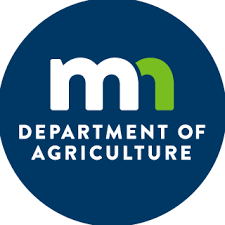
Minnesota Agriculture Commissioner Thom Petersen today released the annual list of top Minnesota dairy herds with low somatic cell counts (SCC). Somatic cell count is a key indicator of milk quality – a lower SCC count is better for cheese production and a longer shelf life for bottled milk. In honor of June Dairy Month, 122 Minnesota dairy farms are being recognized for superior herd management skills by achieving an average SCC of under 100,000.
“Minnesota’s farmers have faced so many challenges the past several years – low prices, lost markets, and most recently the impact of the COVID-19 pandemic – so it’s really my honor to be able to award these 122 dairies for their high level of excellence and resilience,” said Commissioner Petersen. “These dairy farm families work hard day-in and day-out to produce high quality, wholesome dairy products for all of us to enjoy.”
Although somatic cells occur naturally and are not a food safety concern, dairy farmers monitor them because they can be used as a measure of the health of their cows. Processors also pay a premium for milk with low counts. A farmer whose herd has a very low count can receive a significantly higher price per hundredweight compared to a farmer whose herd average is high.
For more than 15 years, the Minnesota Department of Agriculture (MDA) and University of Minnesota dairy experts have worked with the state’s dairy farmers to lower somatic cell counts. When the initiative began in 2003, the 100 herds honored that year included those with SCC averages as high as 144,000, compared to the current goal of obtaining a SCC under 100,000.
The SCC list of Minnesota dairy farms is online at http://www.mda.state.mn.us/lowscc.
